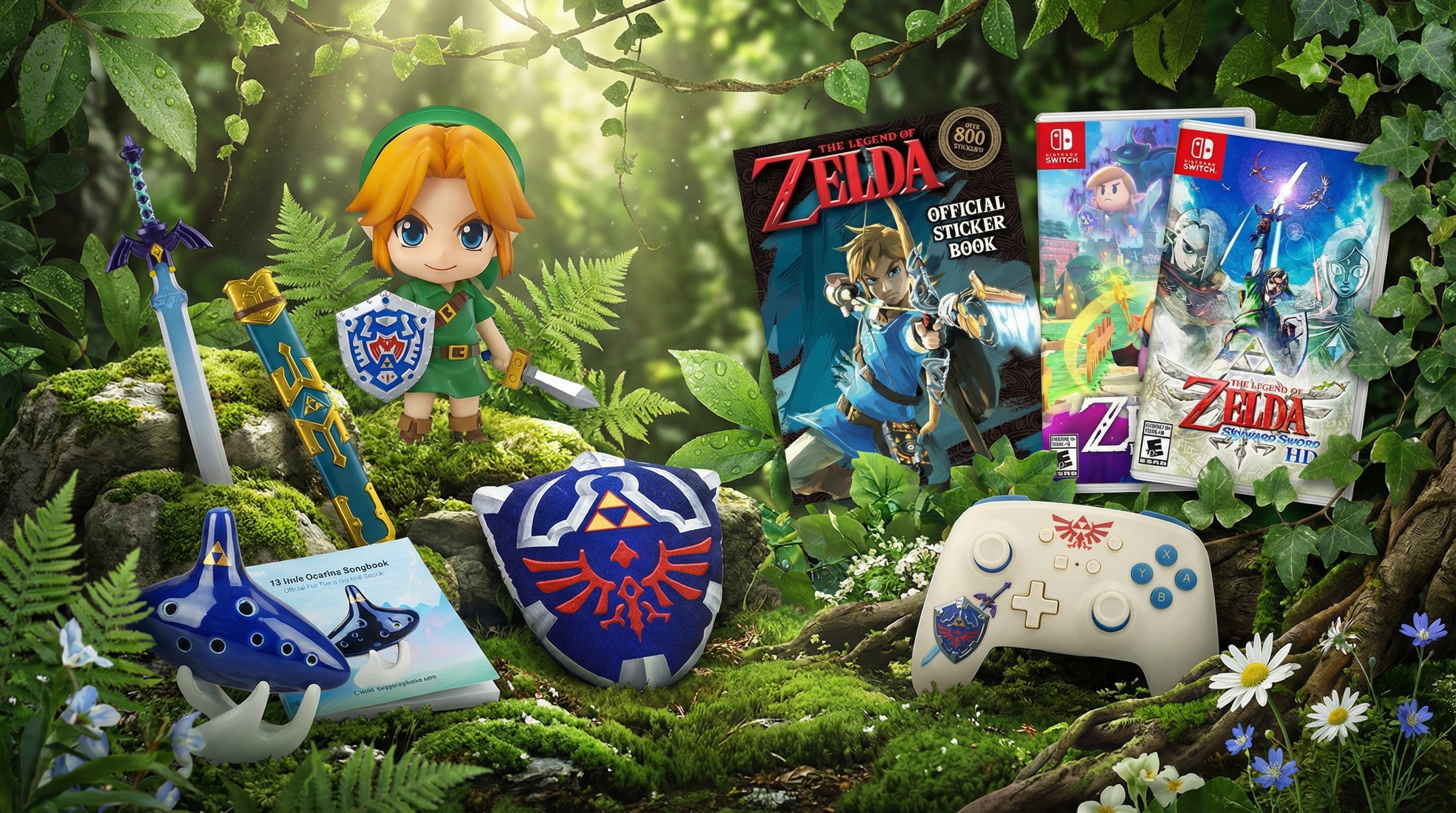How one event saved me from creative industry chaos
Why spaces for women and trans people in the creative industries can build community and solidarity.
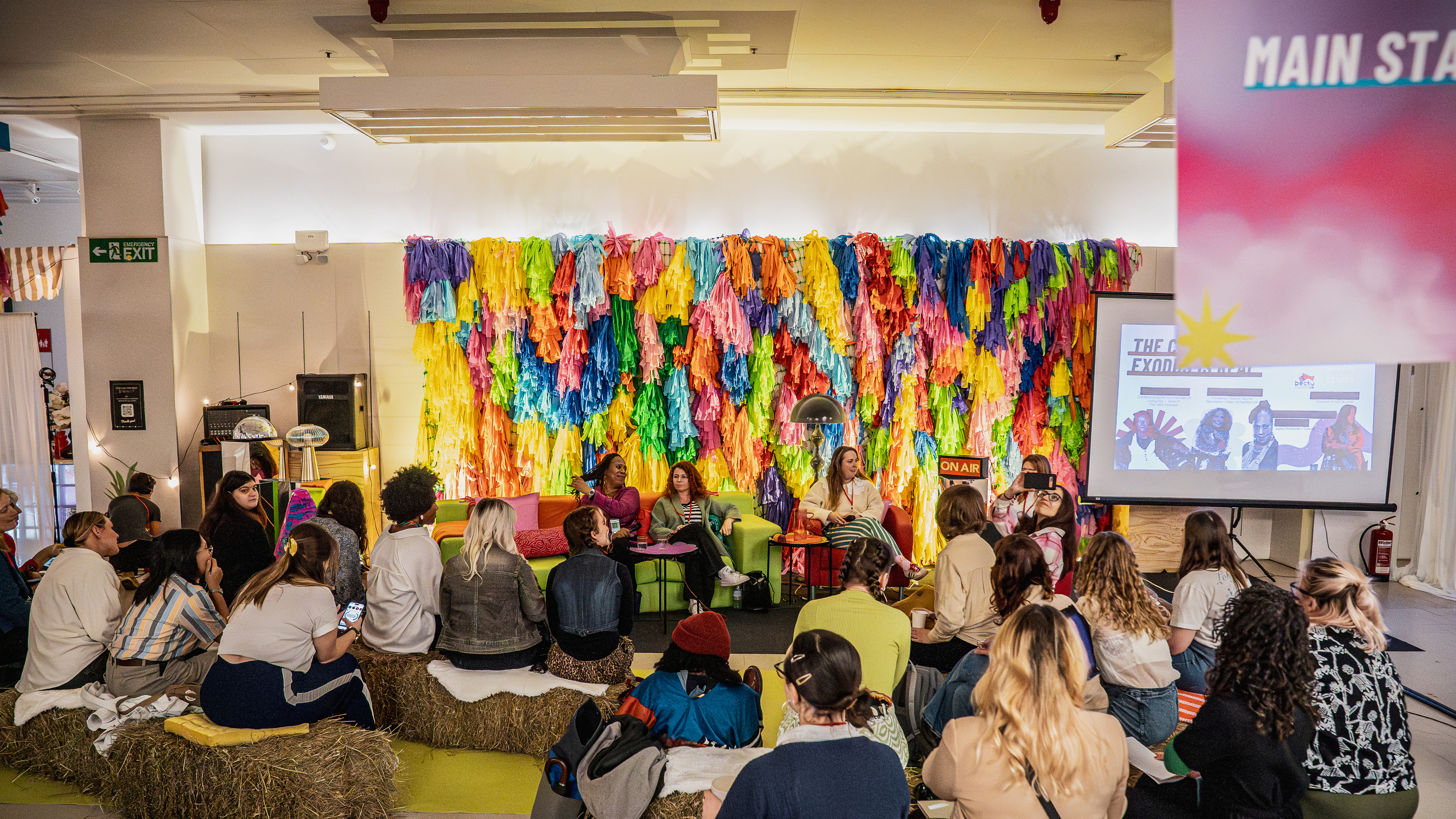
Sign up to Creative Bloq's daily newsletter, which brings you the latest news and inspiration from the worlds of art, design and technology.
You are now subscribed
Your newsletter sign-up was successful
Want to add more newsletters?

Five times a week
CreativeBloq
Sign up to Creative Bloq's daily newsletter, which brings you the latest news and inspiration from the worlds of art, design and technology.

Once a week
By Design
Sign up to Creative Bloq's daily newsletter, which brings you the latest news and inspiration from the worlds of art, design and technology.

Once a week
State of the Art
Sign up to Creative Bloq's daily newsletter, which brings you the latest news and inspiration from the worlds of art, design and technology.

Seasonal (around events)
Brand Impact Awards
Sign up to Creative Bloq's daily newsletter, which brings you the latest news and inspiration from the worlds of art, design and technology.
Women are leaving the creative industries in droves due to a cluster of factors, including sexual harassment and discrimination; working conditions that make it difficult to return after having a child; a “boys’ club” culture, and various other subtle and not-so-subtle barriers.
Changing these deeply entrenched, systemic issues is a complex project, but solidarity is a starting point. Bringing together underrepresented people so they can motivate and inspire each other in a relaxed atmosphere helps to sustain the energy that people need to find their place in a tough working environment.
That’s the aim with Sistaland Festival, a two-day event comprising talks, panels, and workshops that lets women working in film, TV, and other creative industries share their struggles and find commonalities. The first one took place last week in Bristol, with a follow-up event planned for next year.
People come to find their people, share stories, and realise they’re not alone
Nikita Dare
Founder Nikita Dare told us that events like this one are important because working in the creative industries can be incredibly isolating. “Sistaland was born out of the need for real spaces where connection, collaboration, and community come before competition,” she says.
“I would say that we put less emphasis on the word festival, and more on it being a recharge. People come to find their people, share stories, and realise they’re not alone in navigating burnout, self-doubt, or systemic barriers.”
Times are tough for those working in the creative industries, with thousands unemployed and freelancers struggling to get by. Sistaland Festival is therefore positioned to be as affordable as possible, with a full two-day pass costing £50, and an option to attend in the evening for just £15.
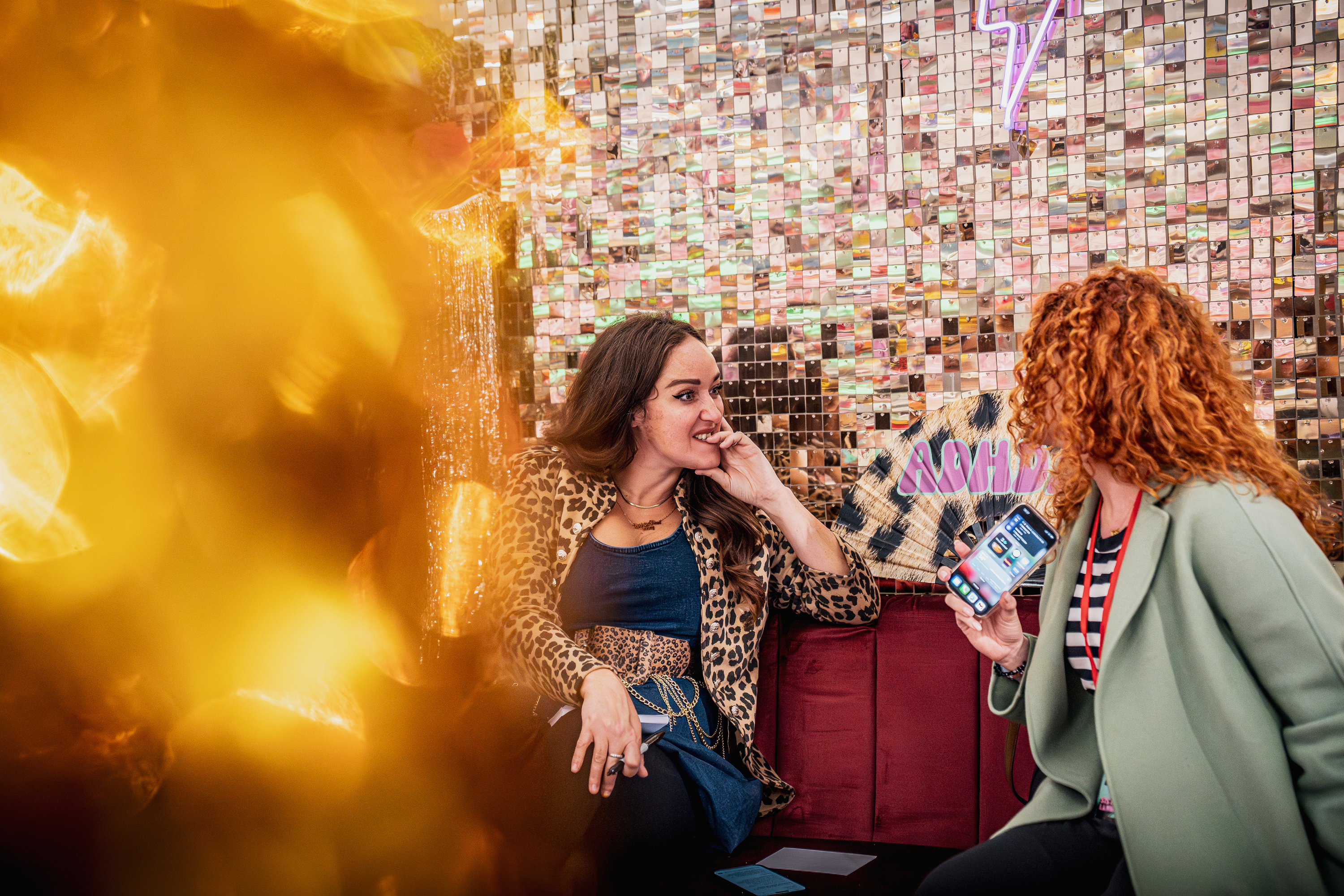
Nikita notes that many industry events seem out of touch with the financial realities that so many people are facing today. “My partner was recently invited to an awards night celebrating emerging talent, and tickets were £190,” she says. “Who can afford that?”
Sign up to Creative Bloq's daily newsletter, which brings you the latest news and inspiration from the worlds of art, design and technology.
“It’s the same with so many film screenings or ‘exclusive’ events that only recognise you once your work has already made it through the gate. Sistaland flips that on its head. We’re celebrating the process, the people, and the persistence it takes just to keep going in an industry that often overlooks the ones doing the real groundwork.”
Sonia Wargacka, a production coordinator, producer and filmmaker who spoke at the festival, told us that this kind of event gives people a sense of belonging and validation. She says: “In an industry that can often feel fragmented or competitive, events like this remind us that success doesn’t and shouldn't have to be solitary - it can be collective.
“Sistaland brings together people from diverse backgrounds - artists, entrepreneurs, creatives, and change-makers - who might not otherwise cross paths. Those interactions often spark new ideas, projects, and partnerships that go far beyond the event itself.”
Diversity in hard times
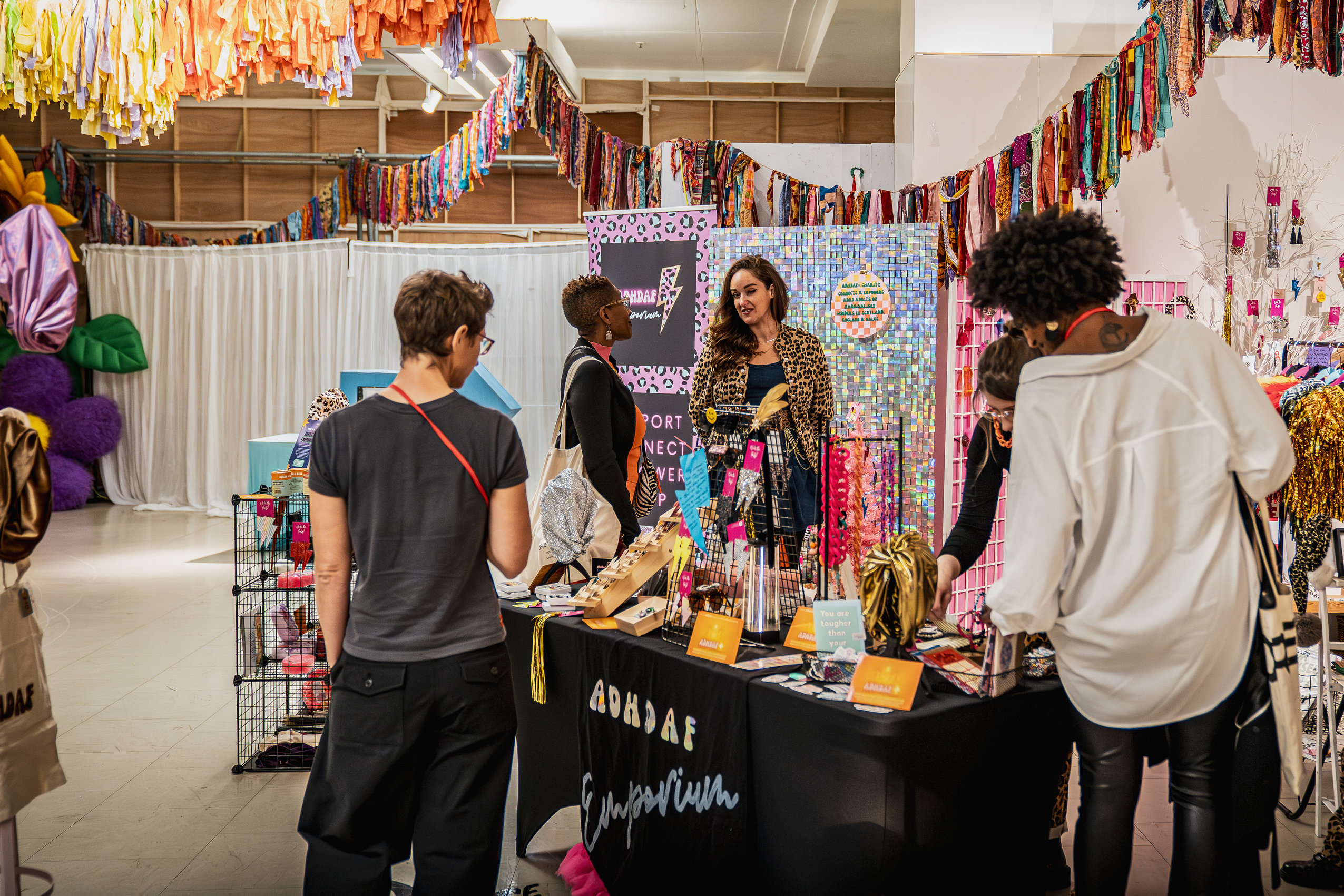
Diversity and inclusion are core values at Sistaland, but in these times of economic turmoil, there’s a risk that industry initiatives to improve these aspects could be sidelined.
Sonia is concerned that when money is tight, opportunities may be less accessible to people from different socioeconomic backgrounds, but she also says, “I actually think moments of upheaval can be powerful opportunities to double down on these values. Change creates space to rethink systems, rebuild cultures, and question who’s been left out of the conversation. If we use that disruption intentionally, we can create a more inclusive and sustainable foundation for what comes next.
“Diversity and inclusion aren’t side projects - they’re the heart of creativity itself. Different perspectives are what drive innovation, authenticity, and connection with audiences. So, rather than losing momentum, I believe this is exactly the time to reinforce those commitments and make sure they’re embedded in the next chapter of the industry.”
Nikita agrees that now could be just the moment to shake things up: “It’s not just about representation anymore, it’s about rewriting how the industry connects, collaborates, and sustains itself.”
She adds, “Fear doesn’t hire diversity. Fear doesn’t hire women. When the industry is led by fear of risk, of change, or losing control, it clings to the same people and the same patterns. But creativity can’t thrive in fear. Progress happens when we lead with curiosity, courage, and compassion; that’s when real diversity takes root.”
Inside Sistaland
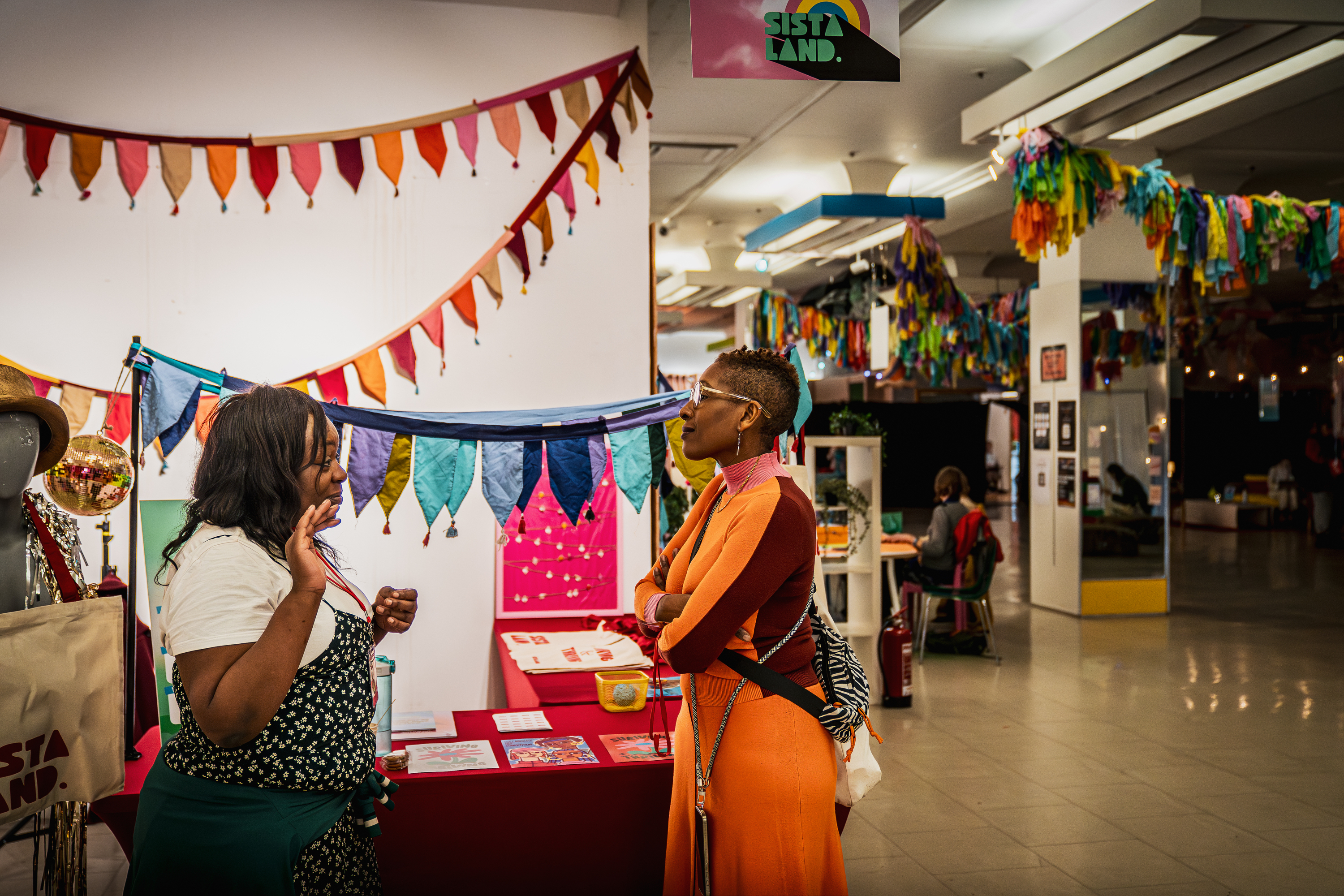
Nikita pulled together a stellar speaker line-up for this event that included Kim Macaskill, a narrative director, screenwriter, and producer for AAA games; Megan Hine, an internationally renowned explorer, survivalist and TV producer; the aforementioned Sonia Wargacka, whose credits include Sex Education (Netflix), Wolf Hall (BBC) and His Dark Materials 3 (BBC/HBO); as well as over three dozen directors, writers, producers and other creative women.
Talk and panel topics ranged from practical guides about pitching and progressing your projects to personal matters such as staying motivated after a setback, protecting your mental health, and combining work with motherhood.
Away from the main stage, there were various small-group workshops for sharing experiences and reflection, as well as dedicated spaces to talk about money, tech, and the specifics of different roles.
Something that was immediately noticeable and commented-upon by several attendees was the comfortable atmosphere, which was unusually relaxed for an environment where most people don’t know each other.
No one brought their ego along, and everyone seemed keen to catch your eye and strike up a conversation. This is the camaraderie that comes so easily in women-only spaces. It’s a different social contract.
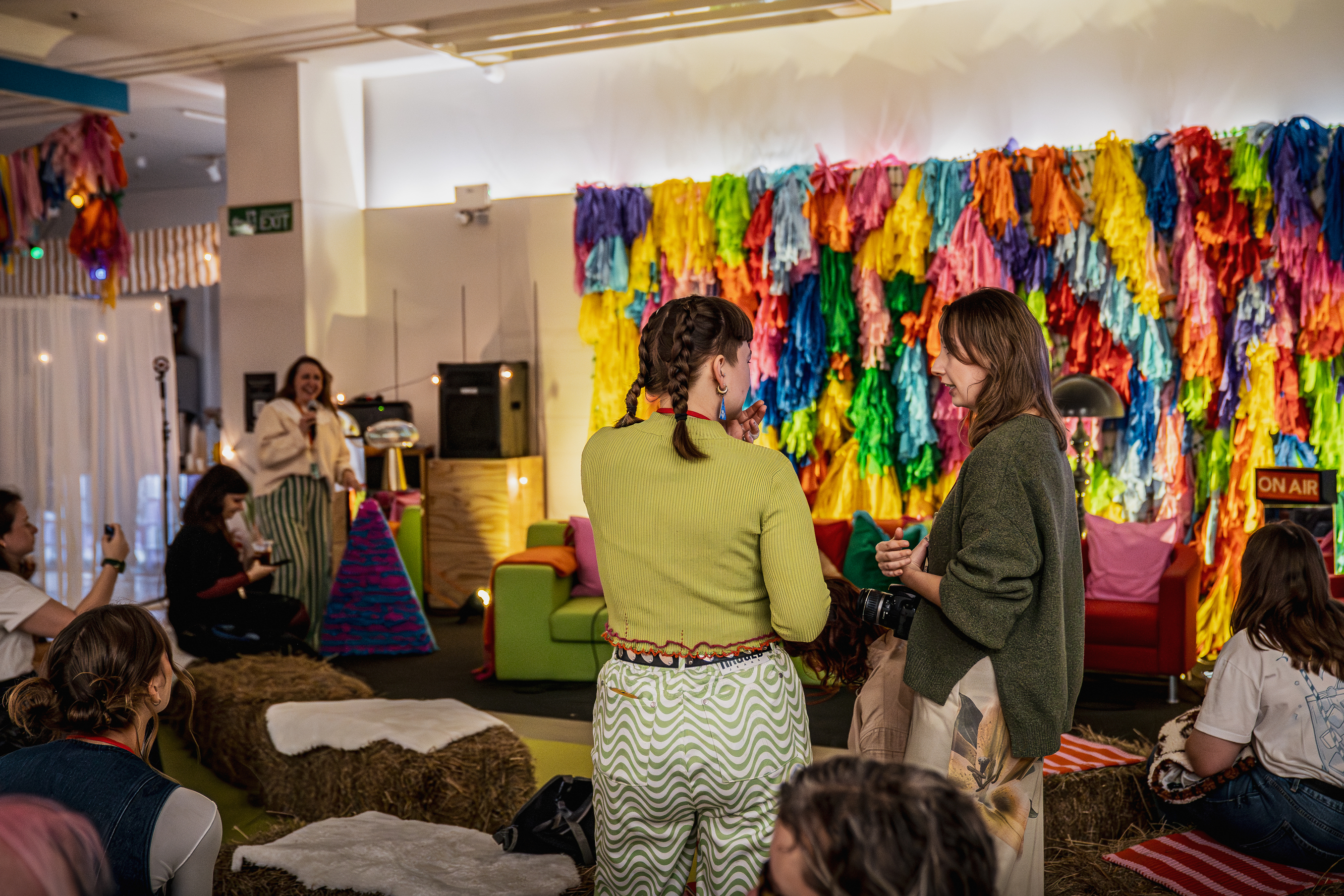
Attendees spoke of the informal conversations they’d slipped into with strangers, and commented that stories and vulnerabilities were shared that might not have been outside of a female-focused gathering.
Particularly intimate were the sharing circles and workshops. One participant said she had been putting off trying therapy, and her experience here had made her feel she could do it.
Another said she had quit the industry due to disability, but had learned from this event that there might be more support available to her than she realised and that it may be possible for her to return.
Taken as a whole, Sistaland Festival is an opportunity to closely examine and interrogate the architecture of work and life, and how the two fit together. Hearing the stories of failure, struggle, and triumph brought home the message that even when it looks as though others are succeeding, behind the scenes, everyone fails and everyone feels like an imposter sometimes.
Life as a woman in the creative industries is about so much more than the work - it’s also about navigating all of the human factors that enhance or detract from your wellbeing as a professional.
If that sounds like your cup of tea, Sistaland Festival 2026 is in the works, and it’s going to be a retreat in the woods. Go sistas.
Inspired? Read our guides to the best digital art software and Procreate tutorials to get inspired and start creating.
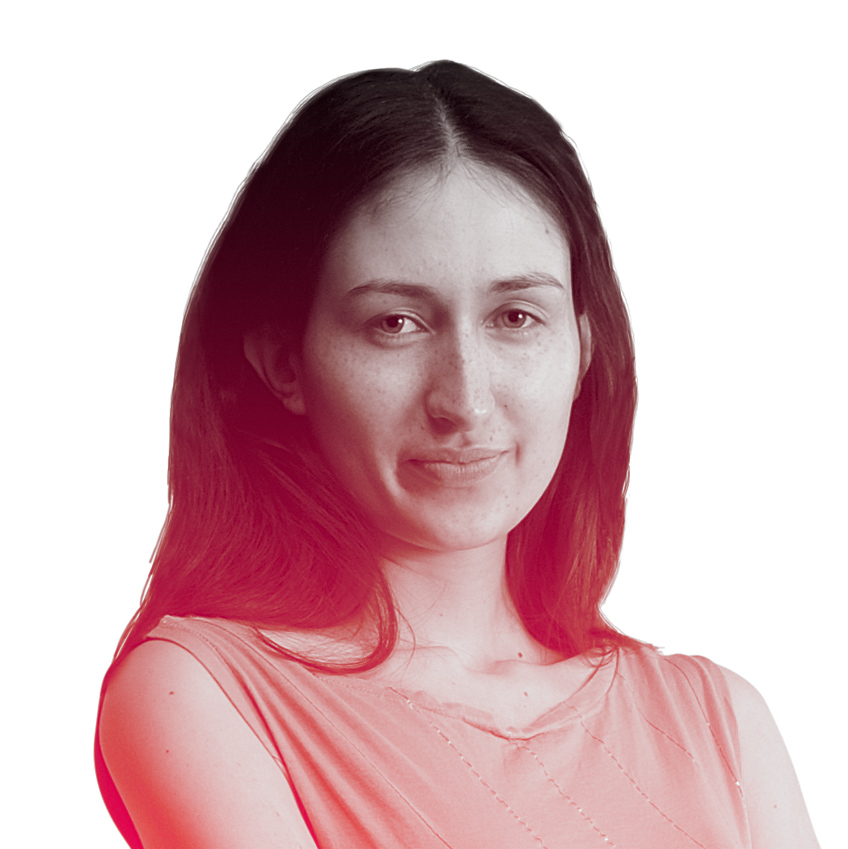
Tanya is a writer covering art, design, and visual effects. She has 16 years of experience as a magazine journalist and has written for numerous publications including ImagineFX, 3D World, 3D Artist, Computer Arts, net magazine, and Creative Bloq. For Creative Bloq, she mostly writes about digital art and VFX.
You must confirm your public display name before commenting
Please logout and then login again, you will then be prompted to enter your display name.
